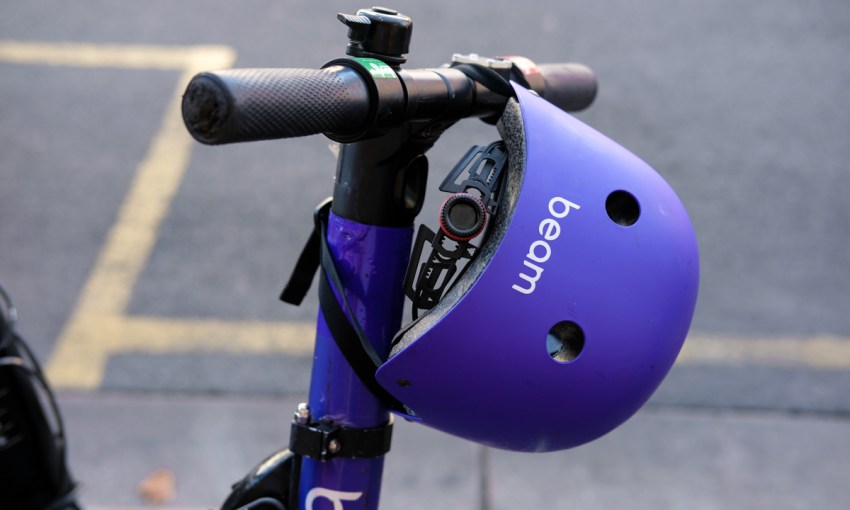Adelaide city councillors have given e-scooter operators six more months to operate in the city, instead of 12, with the move aimed to line up with a State Government-led consultation beginning in early 2023.
Council pumps breaks on year-long e-scooter trial extension
This week at Adelaide Town Hall, councillors voted unanimously to authorise Lord Mayor Jane Lomax-Smith to write to Transport Minister Tom Koutsantonis requesting a six-month extension of the e-scooter trial in the city and North Adelaide.
The administration recommended in their recently published report that e-scooter companies be given a 12-month extension.
“This has been going on for some time and this has been heard several times,” Lord Mayor Jane Lomax-Smith told the chamber at the beginning of the debate.
“Now it’s in the Upper House of Parliament and we’ve been asked to hear it again.
“Six months would allow us to do our consultation and make a submission.”
—Janet Giles
The City of Adelaide has run its e-scooter trial since February 2019, with the most recent extended permit expiring on 31 December 2022.
Two e-scooter companies operate in the City of Adelaide: the purple Beam fleet (which just rolled out Beamfluencers) and the orange Neurons. Both companies pay $1530 per week in operational permit fees to the city.
The City of Adelaide previously expressed a desire to establish a formal policy position on the burgeoning form of transport.
CityMag reported in August the organisation published in its 2022—23 Business Plan and Budget they would “work with the State and Federal Government to future proof infrastructure for emerging modes of transport, and trial smart, sustainable forms of public transport”.
It comes after Parliament launched a Select Committee on Public and Active Transport in June, which was partially tasked with exploring the potential opportunities for the formal regulation of e-scooters.
Private e-scooters and some other electrically powered transport devices are illegal to ride outside of private properties.
According to council documents, the State Government has committed to conducting a community consultation in early 2023 on a possible framework to allow e-scooters and other personal mobility devices on roads.
This includes reviewing legislation and road rules.

Deputy Lord Mayor Phillip Martin. This picture: Tony Lewis
Deputy Lord Mayor Phillip Martin spearheaded the six-month trial extension, saying it would give the State Government enough time to gauge the public’s opinion on e-scooters, and for e-scooter companies to formulate their submissions.
Martin said it was “incumbent” on the State Government to lead the way for e-scooter legislation and that he would look for the Select Committee’s report, expected to be handed down early next year also, for guidance.
“There is a need for a positive operating framework to be developed, which upon that provides assurances to the community about their safety, not only from the risk of collision, but also the tripping hazards that sometimes occur,” he said.
“But also, security to the operators to understand what is required by government at all levels, including this City of Adelaide.
“We ought to be looking for a resolution: that the trial ends and that we have a means of transport that is regulated and works within an operating framework that is acceptable.”
New here? Sign up to receive the latest happenings from around our city, sent every Thursday morning.
The six-month lifeline extension has occurred in the chamber before, with the administration recommending in September the prior elected body ask the State Government for a 12-month extension. This was slashed by the elected body to end at the end of this month.
Central ward councillor Janet Giles said urgent reform was needed.
“Our legislation is the oldest in Australia because we were the first to get this sort of transport,” she said.
“That’s why we have a 25-kilo weight limit and a particular height limit, because it doesn’t allow for better safety measures to be put on the scooters because that will be too heavy or too high.
“We actually need [the State Government] to step up because we can’t improve safety on our own and it’s required to be done through legislation.”




